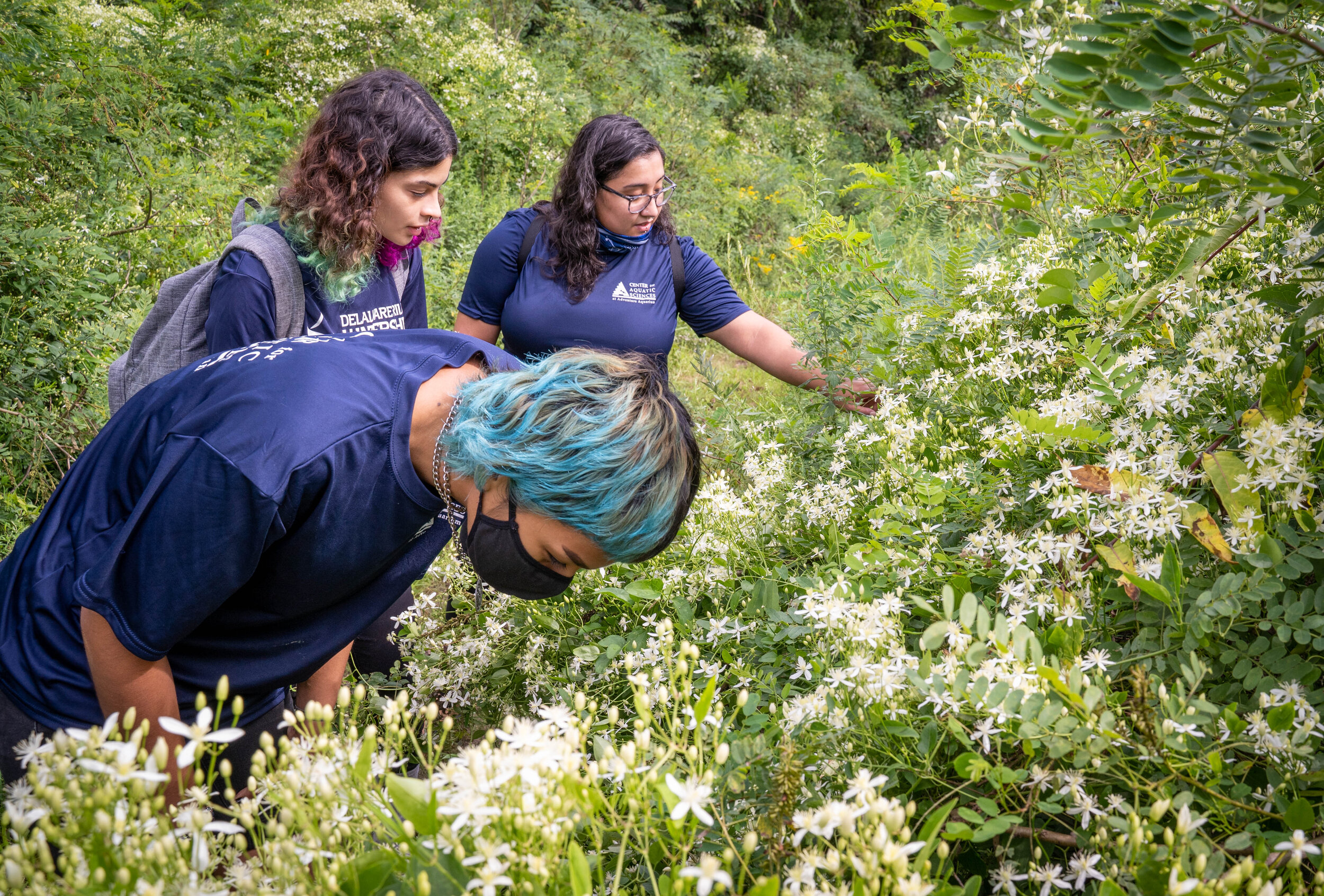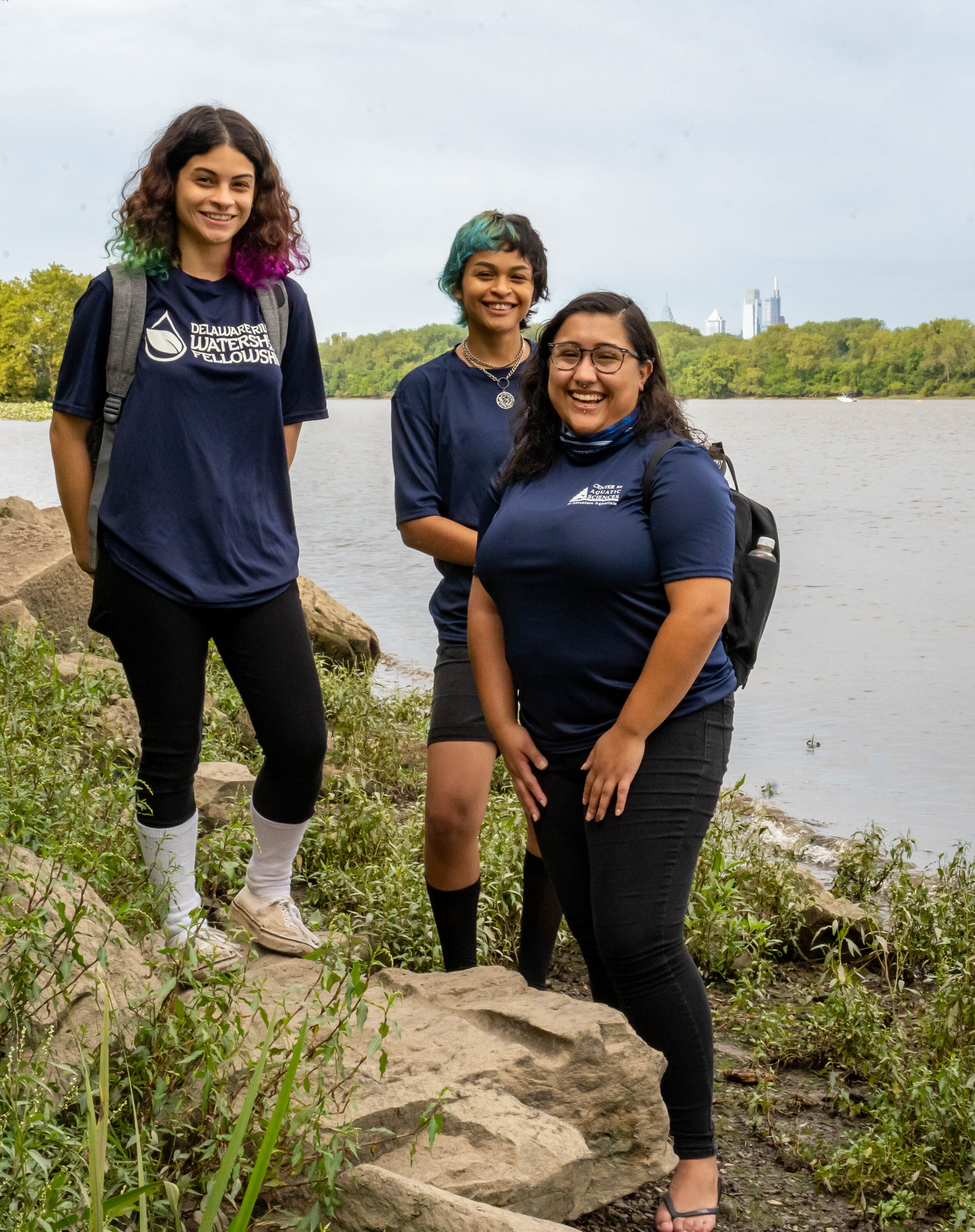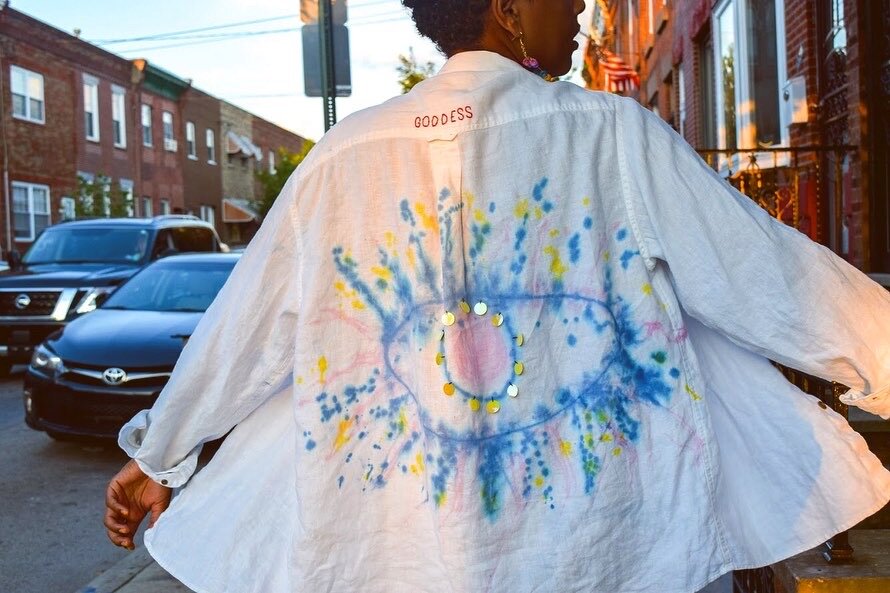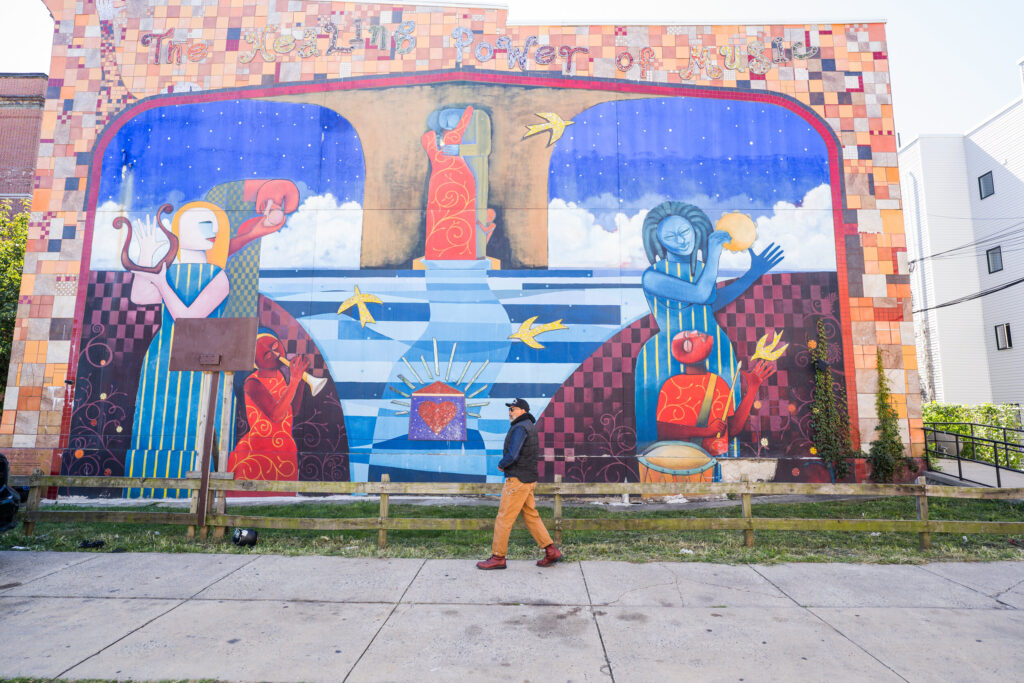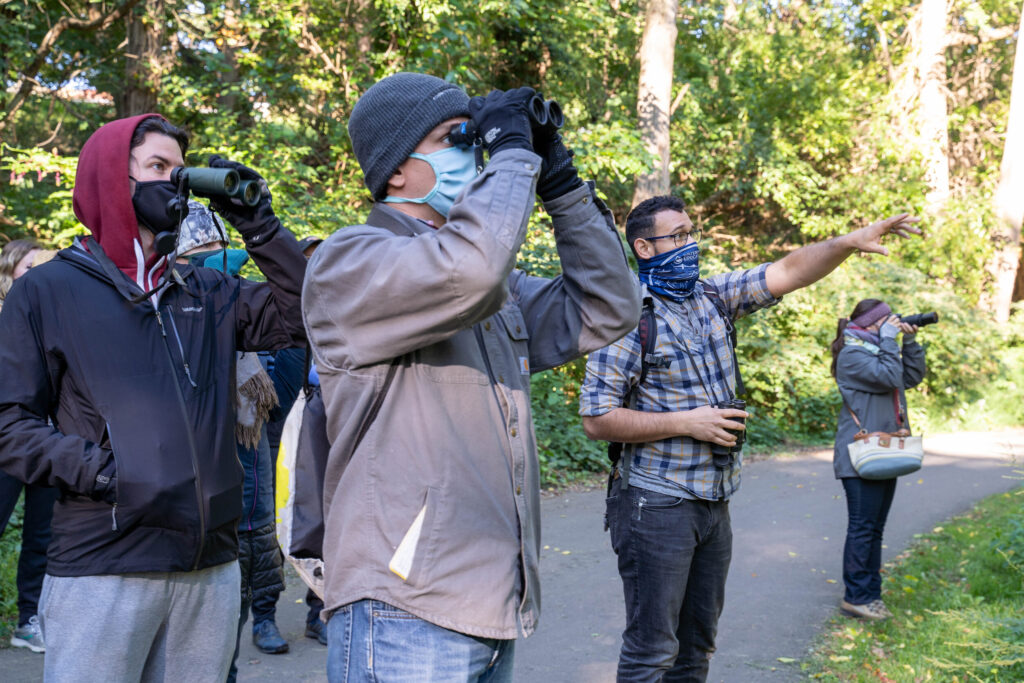With birds singing in the background, three fellows at the Alliance for Watershed Education (AWE) walk through Camden’s Cramer Hill Nature Preserve. They point out a frog in a puddle, examine bones and feathers of a wild turkey, and point out invasive plants, among other conservation challenges. They wrap up with a request for visitors to do their part to keep the preserve clean by picking up trash they see on their own hikes.
But it’s not your typical nature walk— Adriana Amador-Chacon, Ivana Quinones and Priscilla Rios are the hosts of this virtual tour, posted on YouTube.
According to Amador-Chacon, Quinones and Rios, few Camden residents would have considered exploring nature at the preserve, which for 40 years was the site of a sewage treatment plant. Once the plant closed in 1990, the site served mainly as an illegal dumping site. In 2019, the Camden County Municipal Utilities Authority (CCMUA) and the New Jersey Conservation Foundation celebrated two years of cleanup efforts by opening the space as a nature preserve. The three AWE fellows—all Camden natives who live a few blocks from the preserve—spent the summer introducing their neighbors to local green spaces such as the preserve vi a virtual tours, wildlife profiles and scavenger hunts.
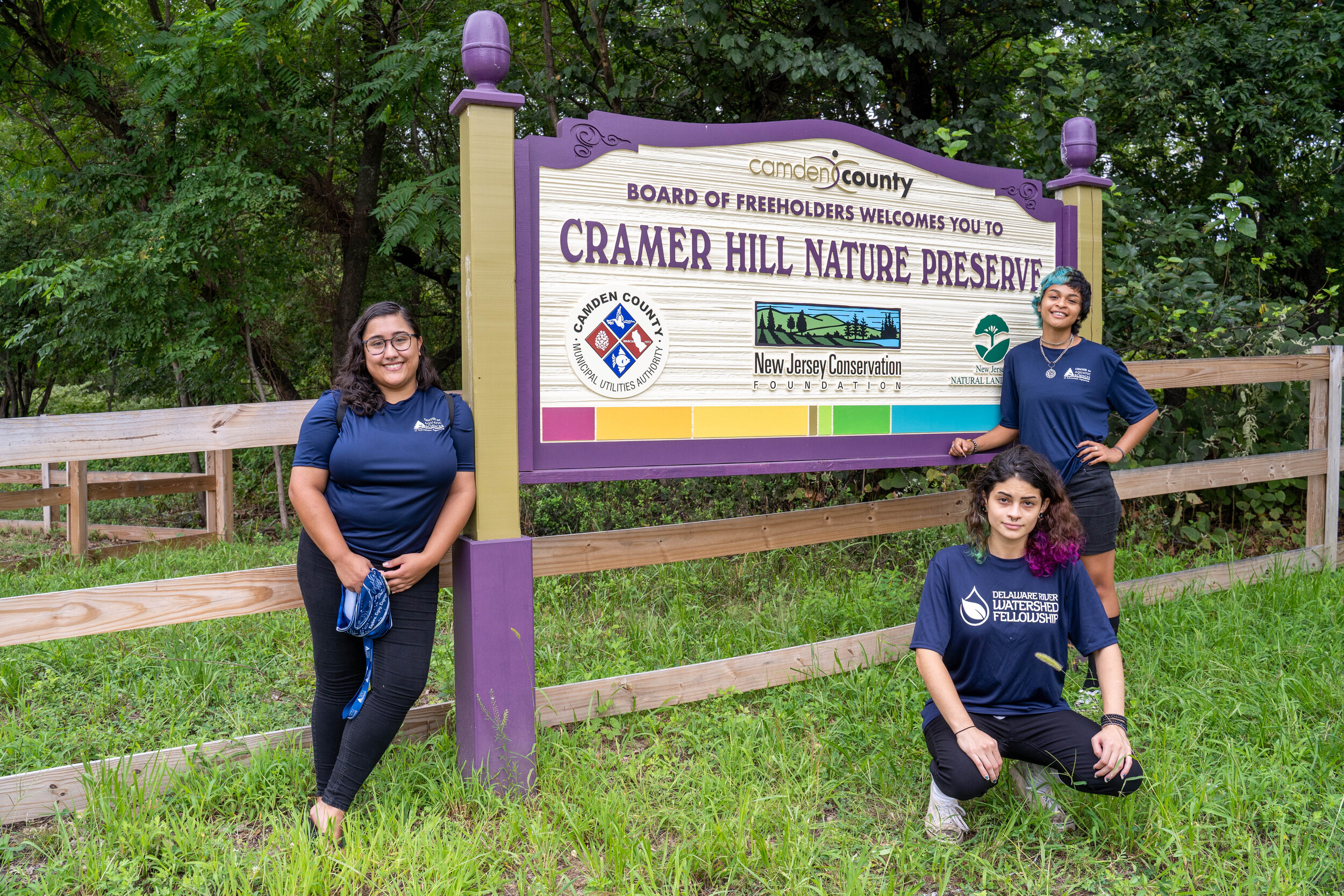
They worked “to pursue it in a way that gives Camden a better outlook than we’ve had lately in the news,” says Amador-Chacon, “…[E]veryone sees it as impoverished and not somewhere you’d like to go on the weekends.”
The Alliance for Watershed Education for the Delaware River Fellowship program, which kicked off in 2017, funds summer environmental education positions for young adults at the 23 environmental centers in Pennsylvania, Delaware and New Jersey that comprise the AWE, according to Robin Irizarry, the AWE fellowship coordinator.
“When you look at a room full of environmental organizations,” says Irizarry, “that room doesn’t reflect the diversity of our region, the population that relies on the Delaware River for drinking water, that uses the trails. We wanted to build a program to empower young people from the communities we were working in to become environmental leaders.”
Most of the environmental centers hosted fellows in the first three years of the program, but the COVID-19 pandemic threw this year’s plans into chaos as the centers closed their doors in March and cancelled in-person programming.
“From their homes they can witness what it would be like if they visit.”
–Adriana Amador-Chacon, Alliance for Watershed Education fellow.
“Going into the springtime, we had big plans for fellows out in the communities, out on the trails, in the community,” says Irizarry. “Typically it’s very hands-on, engaging with people, helping connect people to the watershed and watershed issues.”
Thirteen centers chose to host fellows in 2020, according to Irizarry.
“What was really great was to see how alliance fellows were able to adapt their programming,” she says. “We had folks adapt nature walks so they were videos, people developing signs and brochures for self-guided walks. We had people developing kits for people to do nature activities at home.”
This is how Amador-Chacon, Quinones and Rios ended up creating YouTube tours.
“Normally I would have those three fellows at the aquarium,” says Linda Cairnes, assistant director of experiential engagement at the Center for Aquatic Sciences, which is based at the Adventure Aquarium in Camden.
However, in March, when the aquarium closed to the public, it became clear that a traditional fellowship wouldn’t work, Cairnes says. Cairnes collaborated with staff at the New Jersey Conservation Foundation and the New Jersey Natural Lands Trust—each organization officially hosts one fellow, though the three are coordinated together out of the Center for Aquatic Sciences—and made the fellowships virtual, capitalizing on supplemental funds from the William Penn Foundation to purchase a camera, computer and software packages to produce content such as the virtual tour of the Cramer Hill Nature Preserve.
The Camden fellows welcomed the opportunity to introduce their neighbors to the parks around them, even if they weren’t interacting in person.
“When I first started, I was just telling my family about it, and anyone I would run into I would tell about it, and they were like, ‘That is really amazing. We should go,’ ” says Rios, a biology major at Rutgers University–Camden.
Quinones, too, has enjoyed the work regardless of the limitations posed by the pandemic.
“I really loved the opportunity to educate people about protecting the Delaware River,” says Quinones, who is a marine biology major at Stockton University. “Everything that happens in the river goes into the ocean.”
The Center for Aquatic Sciences received funding to extend the three fellows’ positions beyond the summer, according to Cairnes, giving them more time to develop virtual resources for additional green spaces and to translate the videos into Spanish. “We’re constantly working on new material that’s up and coming,” says Quinones.
They think the video series will serve as a good introduction to the space for many.
“From their homes they can witness what it would be like if they visit,” says Amador-Chacon, “And that’s the goal. We want people to come out here.”



